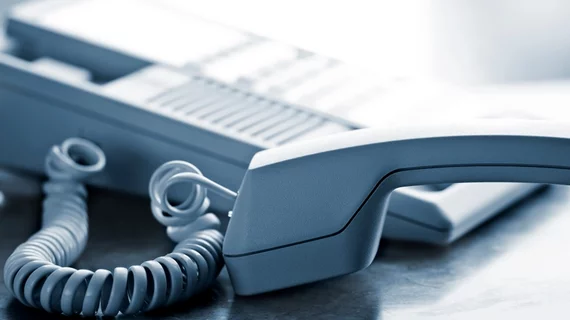Call triage assistants may eliminate stressors that contribute to radiology trainee burnout
Employing a nonphysician to answer reading room phone calls can limit distractions and make life easier for on-call radiology residents.
That’s according to a Dec. 13 study published in the Journal of the American College of Radiology, which found that residents who were aided by a call triage assistant could complete their exam interpretations quicker and perform their on-call duties with less stress. It led radiologists at one institution to hire an assistant of its own.
“The benefits demonstrated by this study motivated our department to hire call triage assistants on the weekends and holidays,” Jennifer L. Levy, MD, with the Hospital of the University of Pennsylvania, and colleagues wrote. “Because other academic medical centers have reported success using medical students in this role, we decided to do the same.”
Phone calls are a “significant” source of interruption during a radiologist’s day and can lead to reading errors. And at Penn Medicine's flagship hospital, on-call residents have a variety of responsibilities including interpreting most emergency and inpatient exams as well as answering all reading room phone calls.
To see if an assistant could help lighten the load, Levy and co-investigators hired a medical student to answer phone calls to the main reading room between 12 p.m. and 7 p.m. on six weekend days. They compared report turnaround times and surveyed resident’s for their stress levels on days with and without the assistant over a three month period.
Most of the 168 calls recorded could be handled by the assistant, leading to a 71% reduction in interruptions. The mean turnaround time for exams fell from 75.2 minutes without assistance to 44.3 minutes on days when residents had help managing calls.
And of the six residents who completed a survey, most said they experienced fewer distractions and reported less call-related stress when the assistant was working.
“This study presents the first quantitative analysis of the impact of a call triage assistant on workflow efficiency,” the researchers wrote.
With burnout levels climbing higher across most physician specialties, adding a call assistant may be an important way to limit stress early on in a radiologists career, the authors noted.

